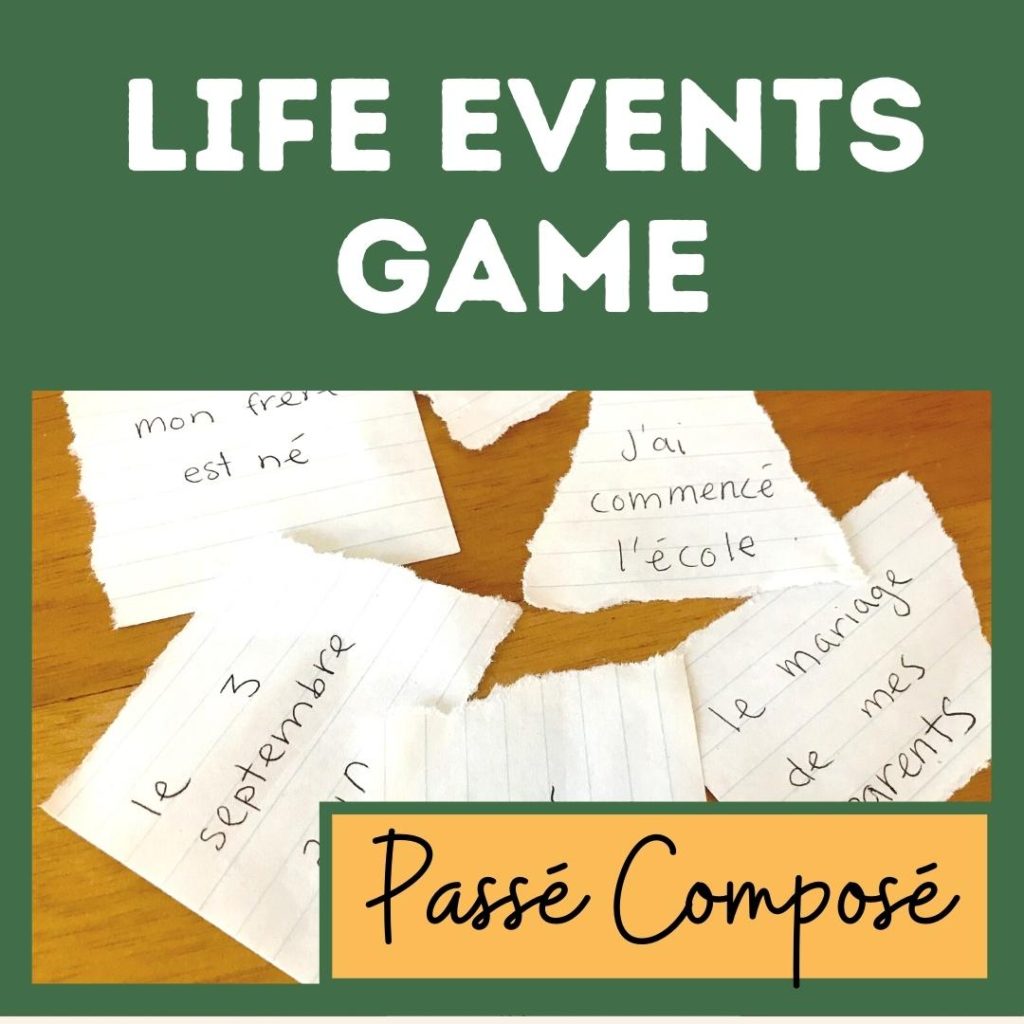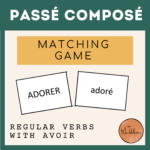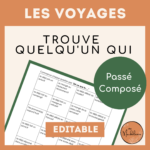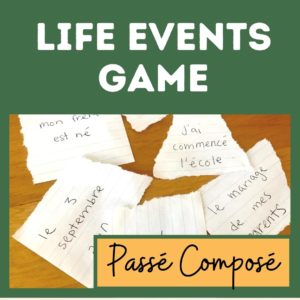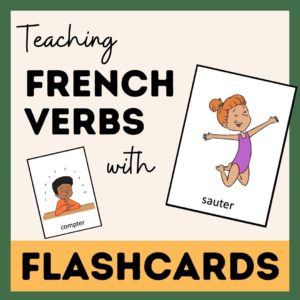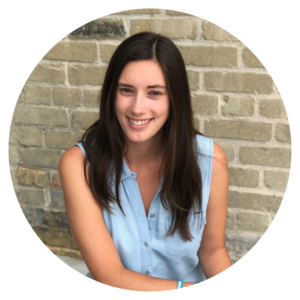Teaching French numbers and dates are often one of the first things that students learn when they are beginning. However, I’ve noticed with my High School students that they still haven’t mastered their numbers, especially the higher ones. This game is a great refresher for students on numbers and dates, and is played using the passé composé tense, so it’s perfect for intermediate students.
How to play:
Set-up
Step 1: Divide students into groups of 3-6 and give each student 6 small pieces of paper and a pen.
Step 2: Every student needs to think of 3 events that happened in their lives and the exact date that they happened.
Step 3: On 3 of the pieces of paper they will write the exact dates in full (day, month and year). On 2 of the remaining papers they will write 2 of the events. One the last paper, instead of writing the real event that happened on the specific date they thought of, they will write a fake one.
Step 4: They write their name on every piece of paper.
Step 5: Each group puts all their papers into a hat/bowl in the center.
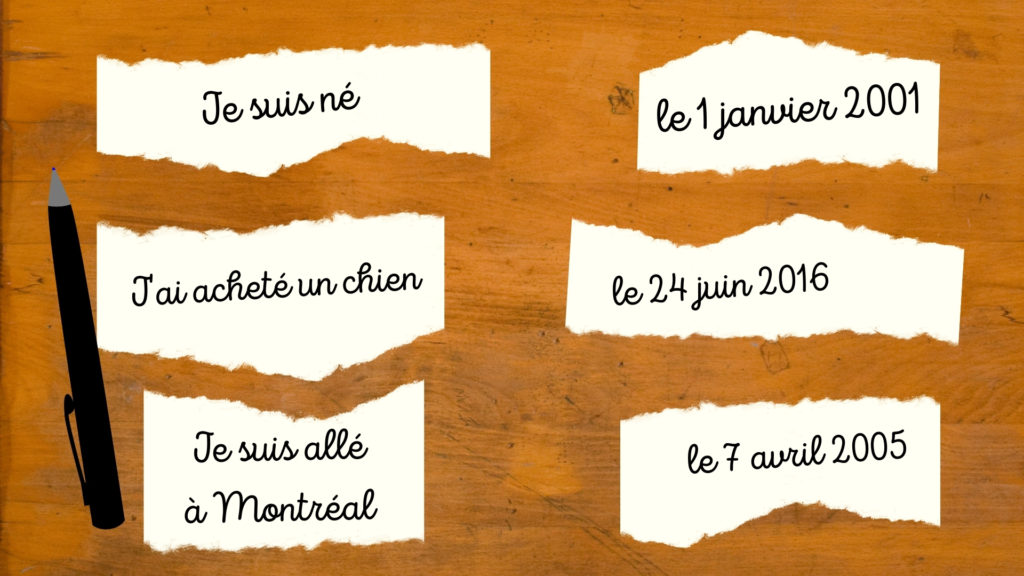
Play
Step 1: Everyone reaches into the bowl and pulls out one piece of paper (if they get their own they just put it back in.)
Step 2: They then take turns asking a question to the person whose paper they pulled. Based on what they pulled (an event or a date) they will ask a different question.
For example, if they pull a date, they need to ask the person what happened on that date. If they pull an event, they need to ask the person when that event took place. Whoever’s name is on the piece of paper, answers the question.
Example 1:
Person A: (pulls the date: le 2 Janvier 2001) “Que s’est-il passé le 2 ianvier 2001?”
Person B: (whose name is on that piece of paper) “Je suis né.”
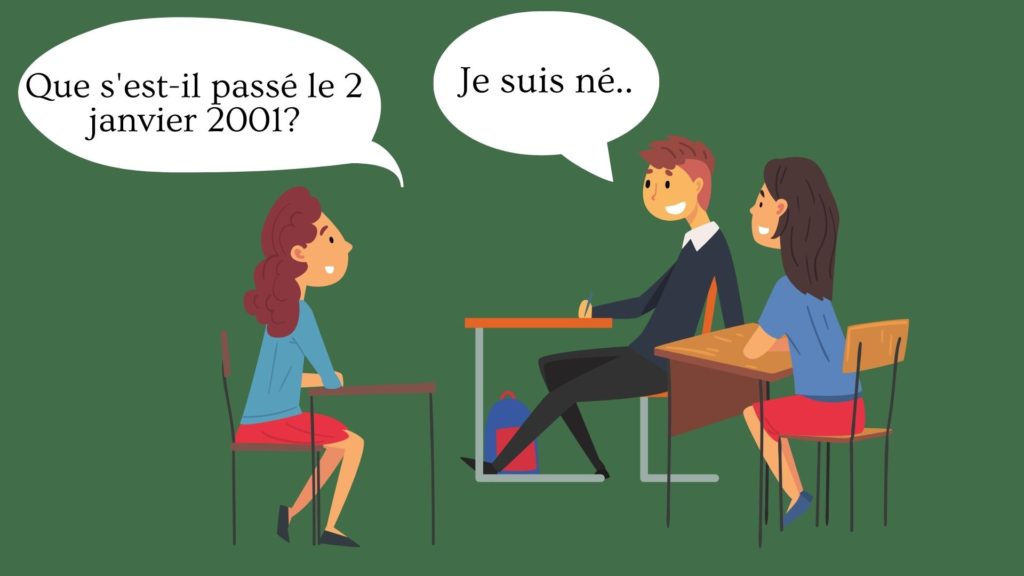
Example 2:
Person A: (pulls an event: Je suis né) “Quand es-tu né?”
Person B: (whose name is on that piece of paper) “Je suis né le 2 ianvier 2001.”
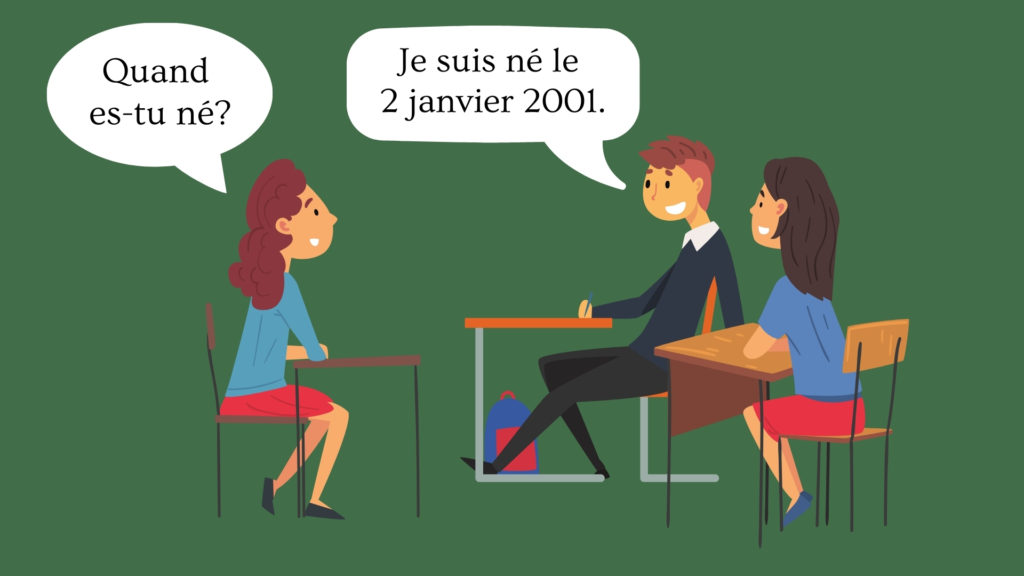
Note: If the fake event is pulled, or the date that corresponds with it, the person answers as though it were real. They do not reveal that the event is fake until the end of the game.
Step 3: Go around the circle until everyone has asked their question.
Step 4: Do another round! Everyone pulls a new slip of paper from the bowl. Keep going until all the pieces of paper are gone. Note that since the dates and the events are paired, people will start pulling things that go together. They can just continue asking the questions like before to gain more practice, or if they remember the event that corresponds to the date they pulled, or vice versa, they can simply make a statement. For example “Carlos est né le 2 janvier 2001.”
Step 5: Once all the papers are gone, students guess which event was fake for each person.
Community Building
I love this game not only for all the grammar and vocabulary that gets practiced, but also because it’s a great way for students to get to know one another better. I like to encourage them to ask one another follow-up questions in French once they learn something new about their classmate. For example, if someone’s event is a trip they went on, the other students could ask them what they did on the trip, who they went with etc. For a challenge, you could more formally build this into the game as a way for students to try to suss out which one of the events is fake.
For more ideas for how you can build community in your French class, check out this blog post!
Passé Composé Resources
If you’re looking for more games and activities for the passé composé, check out these products on my TPT store.
Or click here to see all my passé composé resources.

